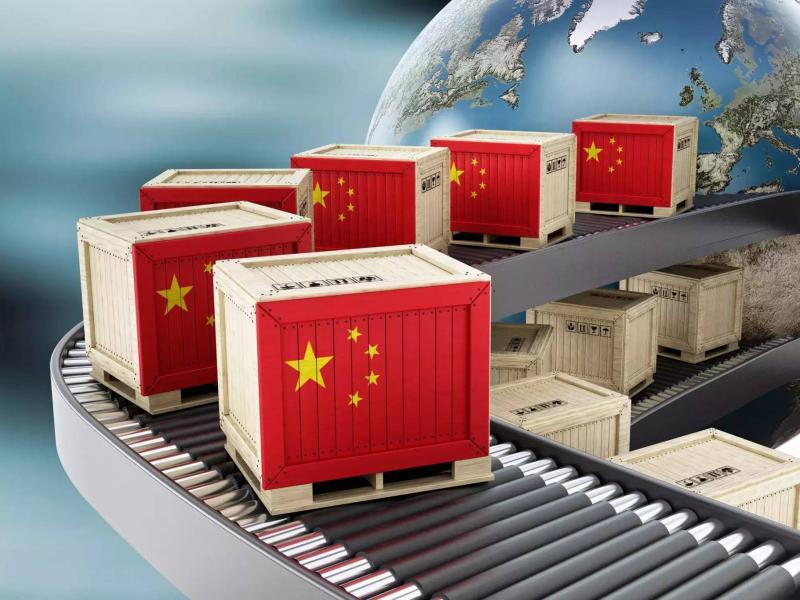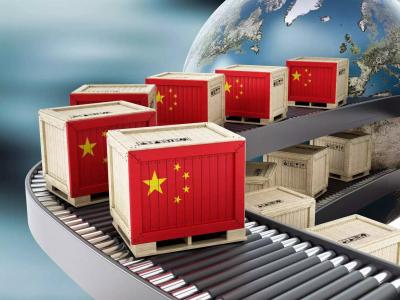Senior officials in President Biden's administration have spent months raising complaints about Chinese overproduction in key industries, forcing both the United States and the European Union to reduce their reliance on Chinese companies. However, The Wall Street Journal reported that European officials are concerned that increases in tariffs like those imposed by the United States could violate global rules set by the World Trade Organization.
The Group of Seven (G7) is gearing up for significant discussions on Thursday that may lead to the formation of a united front in the trade war against China, potentially joined by others, including Russia. President Biden has opened the door to an anticipated war on several fronts, starting with restricting advanced technology from reaching Beijing, in addition to imposing doubled tariffs on electric vehicles, steel, aluminum, or solar energy products. Earlier this month, it was announced that the U.S. Department of Commerce is considering new regulatory measures to restrict the export of proprietary or closed-source artificial intelligence models, particularly to China. Following the White House's announcement in mid-May of sharp tariff increases, China pledged to respond decisively. Given the gravity of the situation and subsequent expectations, the International Monetary Fund publicly criticized the U.S. administration's decision, warning that rising tensions between the two largest economies pose threats to global growth and international trade. IMF spokesperson Julie Kozak stated last week that the U.S. "would benefit more from maintaining open trade policies."
**A Campaign Led by Yellen**
This time, the U.S. foreign campaign is largely spearheaded by Treasury Secretary Janet Yellen, who called on Tuesday in Frankfurt, Germany, for a unified Western response to China. She stated that the U.S. and Europe need to respond to China's surplus industrial capacity "in a strategic and unified way" to maintain the viability of manufacturers on both sides of the Atlantic. Yellen informed reporters that G7 finance ministers share the U.S. concerns regarding China's efforts to dominate clean energy industries, but they need to "coordinate" on trade actions following hefty American tariffs on Chinese goods. She remarked, "I believe that concerns about China's strategy are common, and all I suggest is that given many countries share these concerns, it is stronger to address China as a group."
**Chinese Capacity Threatens Global Companies**
In statements regarding the American-European coalition in Frankfurt, Yellen noted that China's surplus industrial capacity threatens both American and European companies, as well as industrial development in emerging market countries. She added, "China’s industrial policy may seem distant as we sit here in this hall, but if we do not respond strategically and in a unified manner, the viability of businesses in our countries and around the world could be jeopardized." During a trip to Guangzhou and Beijing last April, Yellen warned Chinese officials that the U.S. would not accept their overproduction of certain goods that could flood global markets with cheap exports. She commented from Frankfurt on Tuesday that Chinese production in some sectors significantly exceeds global demand, threatening the development of clean energy industries worldwide. She added that the Biden administration is taking steps to protect American workers and companies from exposure to unfair Chinese economic competition. The Chinese industrial capacity will be a focus of the G7 finance meetings later this week in Stresa, Italy. Yellen concluded, "We want to see healthy sectors in green technology, from innovative startups to green manufacturing facilities, in the U.S., Europe, and around the world, not just in China."
**China Responds Provocatively**
On its part, China emphasizes its opposition to unilateral tariff increases, stating that it is "a violation of World Trade Organization rules," vowing to take all necessary measures to protect its legitimate rights and interests. Beijing also asserted that U.S. and European claims about surplus capacity are "blatant trade protectionism," and that efforts to restrict new energy exports from the world's second-largest economy will undermine global efforts to address climate change. Ministry of Commerce spokesperson He Yadong stated last Thursday: "A country cannot be described as having surplus capacity simply because it has greater capacity than it needs... Production and consumption are global, and supply and demand must align and be adjusted from a global perspective."




